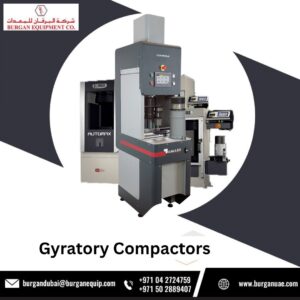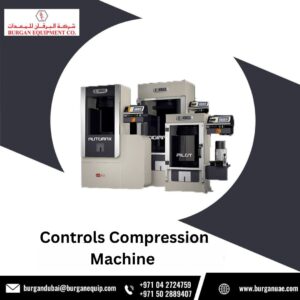Concrete and asphalt are among the most widely used materials for roads, pavements, and flooring. To ensure durability and performance, these materials must undergo rigorous testing before application. One of the most effective tools in this process is the gyratory compactor, which plays a crucial role in simulating real-world traffic and paving conditions.
What is a Gyratory Compactor?

A gyratory compactor is a laboratory device designed to test the performance of asphalt and concrete samples. It applies both vertical pressure and gyratory motion to replicate the stresses materials face under heavy traffic and varying weather conditions.
By using a gyratory compactor, engineers can
- Evaluate the density and durability of asphalt mixtures.
- Determine whether concrete or asphalt can withstand long-term traffic loads.
- Ensure compliance with international paving standards.
Without this device, producing quality asphalt or concrete for paving would be nearly impossible, as it provides reliable data for decision-making.
Why Asphalt and Concrete Testing is Important
Roads and pavements are exposed to constant wear from traffic, heat, and environmental conditions. Testing with gyratory compactors ensures that:
- Materials have the right mix design.
- Pavements can endure climatic variations.
- Contractors meet safety and durability requirements.
Testing services are often offered by specialized construction laboratories, though large contractors may also install their own machines for in-house quality control.
Where is a Compression Machine Required?

Another important testing device is the controls compression machine, which is used to test the compressive strength of construction materials such as cement, concrete, and blocks.
Key benefits of a compression machine:
- Applies controlled compressive force until failure point.
- Generates automated data on material strength, speed, and load.
- Helps engineers determine the tolerance of materials for structural safety.
This computer-controlled testing machine is widely used in construction projects to guarantee the reliability of materials before use.
How PCI Helps in Road Condition Assessment
After construction, pavements need continuous monitoring to ensure long-term performance. The Pavement Condition Index (PCI) is a standard rating system that evaluates the overall health of roads and airfields.
- PCI ratings range from 0 to 100.
- 100 = Perfect pavement, no visible damage.
- 0 = Worst possible condition.
- The index helps engineers assess cracks, rutting, and surface distress.
- It supports transportation authorities in maintenance planning, budgeting, and infrastructure management.
Regular PCI assessments extend pavement life and reduce long-term repair costs.
Conclusion
The role of gyratory compactors in asphalt and concrete paving is vital for ensuring quality, safety, and longevity of road infrastructure. Along with compression machines for strength testing and PCI evaluations for condition assessment, these tools form the backbone of modern construction material testing.



